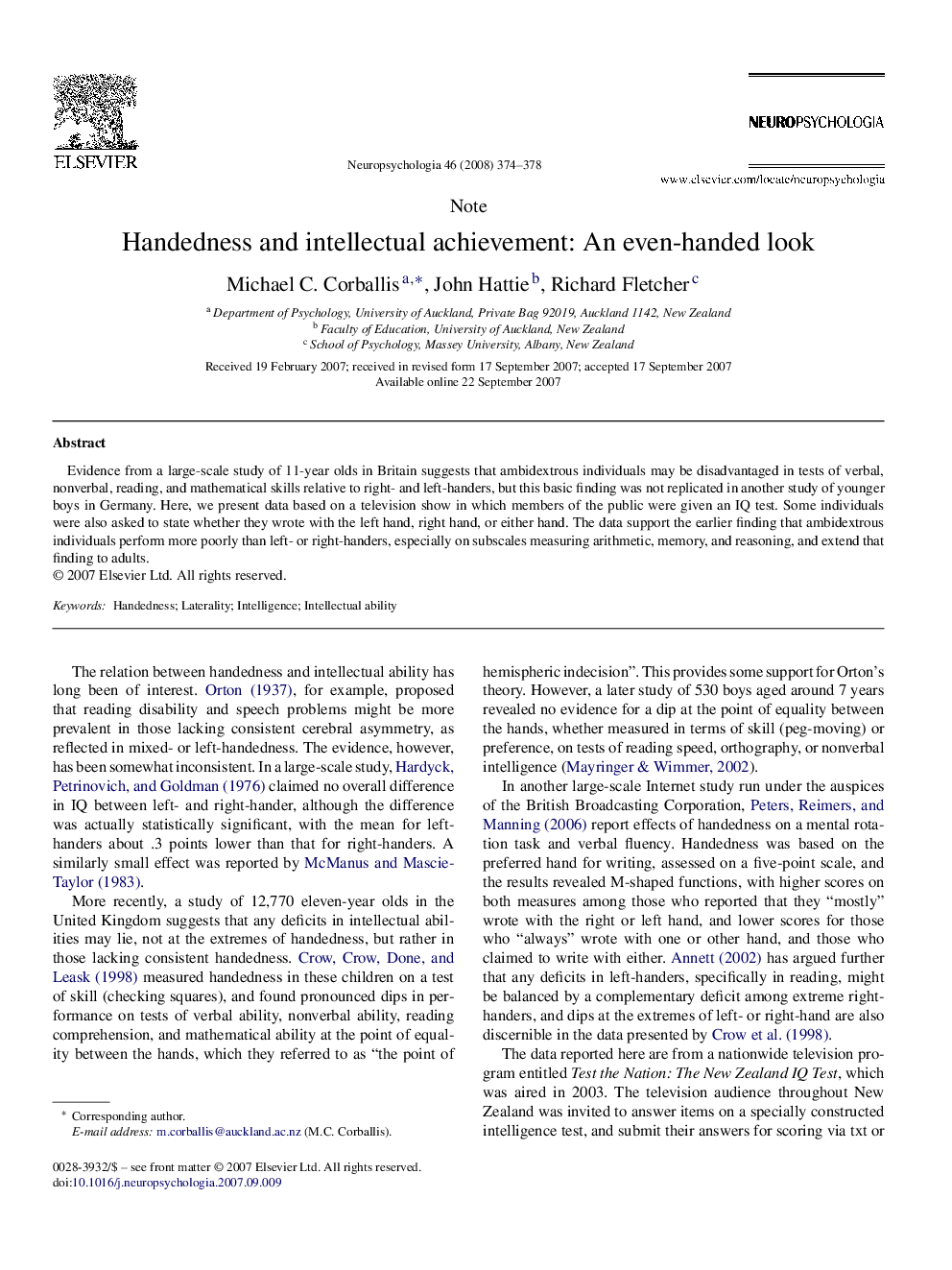| Article ID | Journal | Published Year | Pages | File Type |
|---|---|---|---|---|
| 945414 | Neuropsychologia | 2008 | 5 Pages |
Abstract
Evidence from a large-scale study of 11-year olds in Britain suggests that ambidextrous individuals may be disadvantaged in tests of verbal, nonverbal, reading, and mathematical skills relative to right- and left-handers, but this basic finding was not replicated in another study of younger boys in Germany. Here, we present data based on a television show in which members of the public were given an IQ test. Some individuals were also asked to state whether they wrote with the left hand, right hand, or either hand. The data support the earlier finding that ambidextrous individuals perform more poorly than left- or right-handers, especially on subscales measuring arithmetic, memory, and reasoning, and extend that finding to adults.
Related Topics
Life Sciences
Neuroscience
Behavioral Neuroscience
Authors
Michael C. Corballis, John Hattie, Richard Fletcher,
